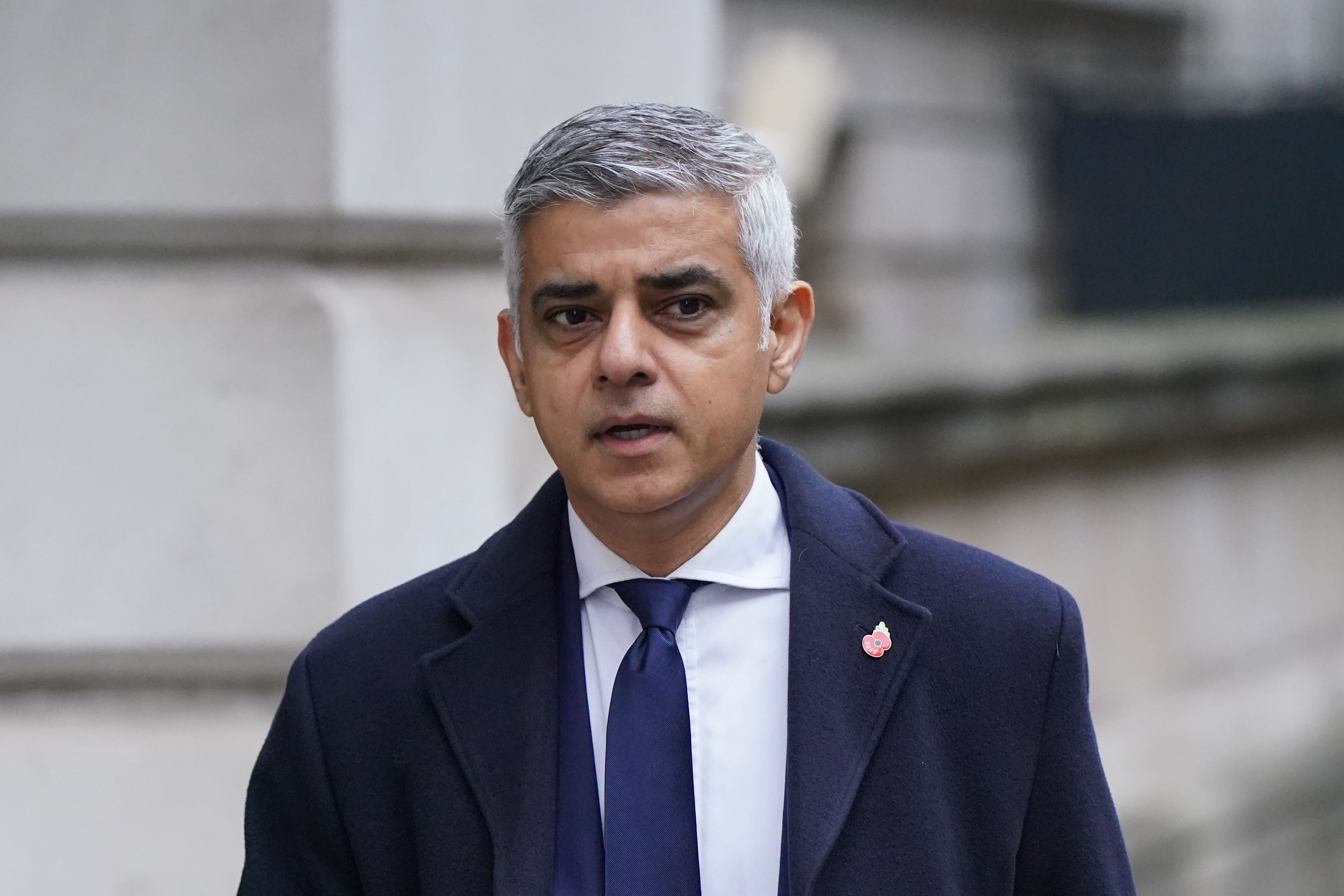Sadiq Khan, Sir Chris Whitty join public health leaders for air pollution talks
The move comes a week after Mr Khan announced the extension of London’s ultra-low emission zone.

Your support helps us to tell the story
From reproductive rights to climate change to Big Tech, The Independent is on the ground when the story is developing. Whether it's investigating the financials of Elon Musk's pro-Trump PAC or producing our latest documentary, 'The A Word', which shines a light on the American women fighting for reproductive rights, we know how important it is to parse out the facts from the messaging.
At such a critical moment in US history, we need reporters on the ground. Your donation allows us to keep sending journalists to speak to both sides of the story.
The Independent is trusted by Americans across the entire political spectrum. And unlike many other quality news outlets, we choose not to lock Americans out of our reporting and analysis with paywalls. We believe quality journalism should be available to everyone, paid for by those who can afford it.
Your support makes all the difference.Mayor of London Sadiq Khan and chief medical officer Sir Chris Whitty will join public health leaders on Tuesday to discuss how they can work together to tackle air pollution.
It marks the first time London’s Public Health Forum has brought together senior health experts from across the capital to discuss the impact of air pollution on health.
The group will also discuss the measures being taken locally, regionally and nationally to improve air quality and identify what more can be done to support more Londoners to have access to better indoor and outdoor air quality.
The move comes a week after Mr Khan announced the extension of London’s ultra-low emission zone (Ulez) to cover the whole of the capital from August 29 next year in an effort to boost air quality.
Transport for London (TfL) estimates that on an average day about 160,000 cars and 42,000 vans that use London’s roads would be liable for the £12.50 Ulez fee.
But transport officials believe that by the end of next year the expansion of the scheme will have encouraged tens of thousands of those drivers to switch to vehicles that comply with the minimum emissions standards or use other modes of getting around such as walking, cycling or public transport.
“I have made very clear my determination to clean up London’s filthy air with my recent announcement that the Ultra Low Emission Zone will be expanded London-wide,” Mr Khan said.
“This bold action will mean five million more Londoners breathing cleaner air and all the money raised will be invested into improving public transport.
“I am doing all I can in London to reduce air pollution, but our efforts alone will not enough. We need to all work together – the Government, public bodies and health organisations – collaborating and using our collective strength to go further and faster than ever to tackle the scourge of toxic air.”
Among the other speakers at Tuesday’s event will be Rosamund Adoo-Kissi-Debrah, whose daughter Ella was nine-years-old when she suffered a fatal asthma attack in 2013 linked to severe air pollution.
Ms Adoo-Kissi-Debrah previously said there were health costs of £20 billion a year from conditions related to air pollution, which is linked with early deaths and a host of health problems from asthma to dementia, lung cancer and low birth weight, as well as development issues in children.
“Air pollution affects us all,” Sir Chris said.
“Air pollution is everybody’s problem, but it has improved, and will continue improving provided we are active in tackling it.”